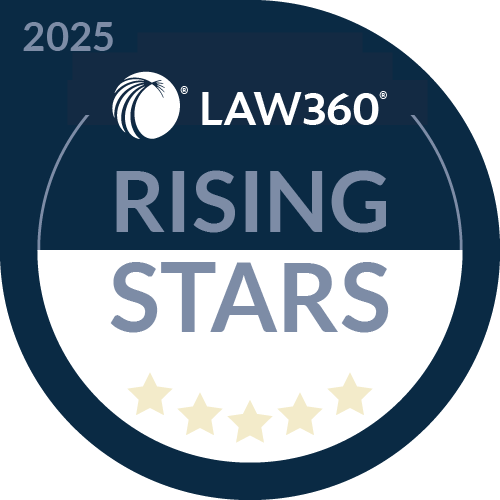Women who have suffered severe health problems, including uterine cancer, from chemical hair relaxers and straighteners may have significant legal recourse. Our experienced hair relaxer uterine cancer lawyers at Breit Biniazan are actively investigating claims against L’Oréal and other manufacturers of popular hair straightening products that contain toxic chemicals. If you believe your health has been impacted, contact us today for a free, confidential case evaluation to understand your legal options and pursue the justice you deserve.
What Are Hair Relaxers and Why Are They Harmful?
Hair relaxers, commonly used to straighten curly or textured hair, often contain powerful chemicals such as sodium hydroxide (lye), ammonium thioglycolate, and formaldehyde. Many of these substances are known endocrine disruptors—chemicals that interfere with the body's hormone system—and can be absorbed into the bloodstream through scalp exposure. This absorption has been scientifically linked to a range of serious health risks, including uterine and endometrial cancer.
Examples of Chemicals in Hair Straighteners That Can Lead to Cancer
These carcinogenic or endocrine-disrupting chemicals in hair relaxers contribute to increased cancer risk:
- Formaldehyde: Known human carcinogen linked to several cancers.
- Sodium Hydroxide (Lye): Alkali that can cause tissue damage leading to cancer.
- Phthalates and Parabens: Hormone disruptors linked to reproductive cancers.
- Other Toxic Compounds: Benzophenone-3, triclosan, and cyclosiloxanes.
Key Studies Linking Hair Relaxers to Uterine Cancer
A growing body of scientific research reinforces the link between chemical hair relaxers and an increased risk of uterine cancer and other reproductive cancers:
- 2022 NIH Study (Journal of the National Cancer Institute): This landmark study, which followed 33,497 U.S. women for nearly 11 years, found that frequent users (more than four times in the previous year) had more than double the risk of developing uterine cancer compared to those who did not use these products. It estimated that the risk of uterine cancer by age 70 for never-users was 1.64%, but for frequent users, this risk rose to 4.05%.
- 2023 Black Women's Health Study (Environmental Research): A significant analysis from Boston University, published in October 2023, found that long-term use of chemical hair relaxers by postmenopausal Black women was associated with a greater than 50% increased risk of uterine cancer for those who used relaxers more than twice a year or for over five years, compared to women who never or rarely used them.
- Ongoing Research: Other studies continue to explore the link between hair products and various cancers, highlighting the presence of endocrine disruptors and carcinogens in these formulations.
Who Is Most at Risk?
Alarming evidence indicates that Black women are disproportionately affected by the health risks associated with chemical hair relaxers.
This disparity stems from several factors related to product use and historical beauty standards:
- Higher Usage Rates: Black women are the primary consumers of chemical hair straighteners and relaxers, using these products at significantly higher rates—often twice that of white women. Up to 95% of adult Black women in the U.S. have reported using hair relaxers at some point in their lives.
- Increased Exposure: Due to more frequent application, earlier initiation of use (often in childhood), and long-term consistent use, Black women face a greater cumulative exposure to harmful chemicals over their lifetime.
- Aggressive Cancer Types: Research shows that Black women not only have higher incidence rates of uterine cancer, but they are also more likely to be diagnosed with more aggressive subtypes and at later stages, leading to nearly twice the mortality rate from uterine cancer compared to white women. For example, from 2018-2022, the uterine cancer mortality rate for non-Hispanic Black females was 9.5 per 100,000, compared to 4.7 per 100,000 for non-Hispanic White females.
- Product Availability: Studies have also pointed to less availability of safer hair products in neighborhoods with higher compositions of racially minoritized and lower socioeconomic status residents, further contributing to disproportionate exposure.
This stark disparity underscores the urgency of legal efforts to represent and advocate for Black women who have been harmed by these products.
FDA Oversight and Product Regulation
While cosmetics such as hair relaxers and straighteners are not required to undergo FDA approval before being sold, they are subject to regulation under the Federal Food, Drug, and Cosmetic Act (FD&C Act) of 1938. This means:
- Manufacturers must ensure the safety of their products and adhere to labeling guidelines.
- They cannot use harmful ingredients or make false claims.
- They are expected to provide information about proper use and potential risks.
- Companies are also required to register their products with the FDA, list active ingredients, and report any significant problems.
Despite these regulations, many manufacturers are accused of failing to adequately warn consumers about the severe risks posed by the toxic ingredients in their products.
L’Oréal and Other Companies Named in Lawsuits
L’Oréal faces multiple class action lawsuits alleging failure to warn consumers about dangerous ingredients causing uterine cancer. Other brands implicated include:
- Dark and Lovely
- Just for Me
- Motions
- Olive Oil Girls
- Soft & Beautiful
- Strength of Nature Global LLC, among others
MDL No. 3060 consolidates many of these claims into multidistrict litigation for collective courthouse procedures.
Am I Eligible for a Hair Relaxer Lawsuit?
You may qualify to file a claim for hair straightener cancer if:
- You have been diagnosed with uterine or endometrial cancer.
- You frequently used chemical hair relaxers or straighteners for several years.
- You can provide medical records and evidence of product use.
- Your condition developed after using these products.
Statute of Limitations for Hair Relaxer Lawsuits
The timeframe for filing a hair relaxer lawsuit, known as the statute of limitations, is critical and varies by state. This legal deadline dictates how long you have from the date of your injury or the date you discovered your injury (or reasonably should have discovered it) to file a claim.
- State-Specific Deadlines: Statutes of limitations typically range from one to six years, depending on your state's laws.
- Discovery Rule: In many product liability cases, the "discovery rule" may apply, meaning the clock starts ticking when you first learn of a potential link between your illness and the product, not necessarily when you first used the product.
- Statutes of Repose: Some states also have "statutes of repose," which can set an absolute deadline from the date a product was first sold or manufactured, regardless of when the injury was discovered. This is a complex area, particularly for injuries like cancer that may take many years to manifest.
It is crucial to speak with a product liability attorney as soon as possible to determine the specific statute of limitations that applies to your case, as missing this deadline can result in the permanent loss of your right to file a claim.
What Compensation Can Victims Seek?
Potential damages may include:
- Medical expenses (diagnosis, treatment, long-term care)
- Lost wages and reduced earning capacity
- Pain and suffering
- Emotional distress
- Punitive damages in some cases
What to Expect in a Hair Relaxer Case
- Many cases are part of MDL No. 3060 hair relaxer litigation, streamlining pretrial procedures.
- Plaintiffs share discovery and legal resources, increasing efficiency.
- Claims are reviewed on an individual basis for settlement or trial.
- Our dedicated lawyers walk you through each step, from consultation to resolution.
Meet Our Mass Tort Team: Lee Floyd on the MDL Leadership
Partner Lee Floyd is an appointed member of the Plaintiffs’ Steering Committee in MDL 3060, representing victims nationwide. With years of experience in pharmaceutical and product liability litigation, Lee ensures clients receive expert guidance and aggressive advocacy.
Contact Breit Biniazan: Free Case Evaluation
Contact Breit Biniazan today for a free, no-obligation consultation. Our compassionate and skilled hair relaxer uterine cancer lawyers are ready to listen to your story, evaluate your claim, and help you understand how to protect your rights and seek the compensation you may deserve. Take the first step towards justice—call us now to schedule your free consultation.
Frequently Asked Questions
What is the connection between hair relaxers and cancer?
Chemicals in relaxers, like formaldehyde and lye, can disrupt hormones and cause cellular damage linked to uterine cancer.
Is the cancer risk from chemical hair straighteners and relaxers disproportionately higher for black women?
According to the American Association of Dermatologists, black women are the primary consumers of chemical hair straighteners and relaxing shampoos, using these products at twice the rate of white women. A study published in the Journal of Clinical Oncology found that black women are three times more likely to develop uterine cancer than white women. This increased risk may be due to the high usage of hair straighteners among black women or the concurrent use of multiple hair care products that could increase exposure to harmful ingredients.
Which hair relaxer and straightener companies are being sued?
At least eight companies are being sued in federal court for allegedly selling hair straightening devices that can cause severe burns and even death. These include:
- Dark and Lovely
- Just for Me
- L’Oreal
- Motions
- Namaste
- Olive Oil Girls
- Optimum
- Soft & Beautiful
- Strength of Nature Global LLC
- TCB Naturals
The lawsuit claims that the manufacturers did not adequately warn consumers about the risks associated with their products, and knew that they could cause serious injury, but still sold them.
The defendants are accused of violating the Consumer Product Safety Act. The plaintiffs, who are seeking damages, include five women who claim to have sustained third-degree burns from using the hair straighteners, as well as one woman who died of uterine cancer.
What evidence is needed for a claim?
Medical records confirming cancer, proof of product use, and expert testimony linking the products to the injury.
Can I join a class action or MDL?
Yes, many cases are consolidated in MDL No. 3060, allowing collective legal action while preserving individual claims.
What damages can I recover?
Compensation may cover medical costs, lost wages, pain and suffering, and other losses caused by the injury.
Are chemical hair straighteners and relaxers FDA-approved?
No, cosmetics like hair straighteners and relaxers do not require pre-market FDA approval. However, they are regulated under the Federal Food, Drug, and Cosmetic Act (FD&C Act) of 1938. This means manufacturers are responsible for ensuring their products are safe, properly labeled, and do not contain harmful ingredients or make false claims. They must also report serious adverse events to the FDA.













